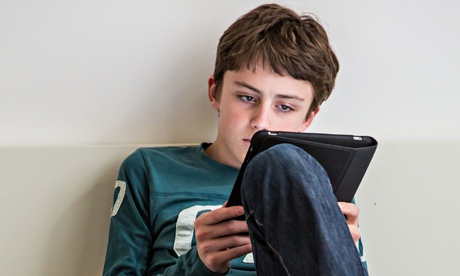
Nodding heads, stifled yawns and dark circles under the eyes have become a familiar sight in Finnish classrooms as sleeping disorders have doubled among school-age children over the past two decades. Researchers believe energy drinks and personal electronic devices could be behind the trend.
Around 20% of teenage girls and 10% of teenage boys in Finland now suffer from chronic fatigue, according to findings from the World Health Organisation (WHO) and the National Institute for Health and Welfare. Researchers studied more than a million teenagers between the ages of 13-17 and found levels of insomnia at a record high. “We suspected that sleeplessness may have increased in recent years, but we never expected the findings to be so great,” said Erkki Kronholm, the senior researcher who led the study. “It’s thought that girls may be at greater risk than their male classmates due to hormonal changes during puberty, though we don’t yet know exactly how this affects sleep,” he admitted.
The results are a concern for the Finnish authorities as studies suggest that prolonged sleeplessness can lead to depression, diabetes, obesity and cardiovascular diseases in later life. Teachers are worried too, as children who cannot stay awake in class are finding it hard to keep up academically. “We found an increasingly widening gap in performance between pupils with sleep problems and those without,” says Kronholm. Finland is regularly voted as having the best education system in the world, but sleep-deprived teenagers may soon force Finnish schools down a grade or two.
More research into the causes was needed, said Kronholm, who has been studying sleep patterns for 30 years, “but based on previous literature, I suspect that energy drinks have an undeniable impact.”
He also pointed to “the ‘screen time’ hypothesis”. Studies show that exposure to bright light from the screens of iPads, tablets, computers and mobile phones can halt the natural production of melatonin and prevent sleep. “Every school child in the country has a smartphone nowadays,” said Kronholm, “something that has been proven to disrupt sleep patterns.”
Parents are now being encouraged to educate their children in “sleep hygiene” and the importance of taking a break from electronic devices before bedtime. “You can take 13- or 14-year-olds in hand to help them with this,” said Kronholm, “though when it comes to 15- or 16-year-olds, it can be more difficult. As a father, I know from experience that kids tend to do what they want at this age.”
The ministries for health and education in Finland are in discussions with Kronholm and his team about further studies and how to get Finnish teens back on track. “There’s a possibility that school may start a little later each day to allow children to sleep more in the mornings,” said Kronholm, “but ultimately these decisions will be down to the politicians.”

